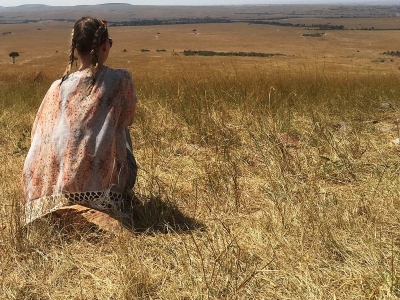By Jena Lynde-Smith
Racism, misogyny, harassment and threats of violence were not among the things that Raisa Patel expected to frequently experience when becoming a journalist. Yet as the target of a vicious online hate campaign, she’s been encountering it weekly.
Patel graduated from Carleton’s School of Journalism and Communication in 2019 and now covers federal politics for the Toronto Star. In her current role, she has been subject to a flood of harassment, including a recent online campaign set against Canadian female and racialized journalists. The campaign, which began last year but picked up steam in August, has sent emails and messages threatening violence and uttering countless racist and gender-based slurs.

Raisa Patel
Patel became a target after showing her support for several colleagues on Twitter.
“Whoever is behind it is monitoring social media and looking to see who is speaking out on behalf of their colleagues. Then they become the next target,” says Patel.
Many victims of the campaign have not held back from publicly sharing screenshots of the emails and messages they’ve received, and Patel says this is important.
“I think the public needs to know what the experience is to be a racialized journalist today,” she says. “It’s critical that people realize what it takes, and what we’re contending with.”
Targets of Online Hate
According to a 2022 report released by the Canadian Association of Journalists and Canadian Journalism Foundation, racialized, women and 2SLGBTQ+ journalists are the biggest targets of online hate.
In a survey led by Carleton journalism professor Matthew Pearson, 56 per cent of participants reported being harassed or threated on social media. Arab, Asian and Black media workers reported the highest rates of online harassment and violence. The survey also found that in comparison to men, at least twice as many women increase security measures at work or home, leave their home city/country/region, change their phone number or email address, or quit social media.
“You’re constantly on guard,” says Patel.
Harassment of journalists isn’t a new phenomenon, but the extreme nature and prevalence of this current campaign has sparked a lot of discourse around where the solution may lie.
Megan Shaw, Carleton master of journalism graduate and CTV News Anchor, outlined some important considerations in her thesis Harassment on Assignment: Gendered Emotional Labour in Canadian Newsrooms. She suggests newsrooms implement an email filtration system, offer online safety training and audits, work to foster inclusive environments and news coverage, and provide free mental health support.
For Patel, journalism schools also have a role to play.
“It’s not to discourage people or make them fearful but the more tools you’re armed with before entering the field, the better,” says Patel.
Strategies to Support and Empower Students
In addition to Carleton’s journalism school’s commitment to helping reverse decades of systemic racism and make newsrooms more inclusive, it is also taking strides to implement curricular changes to support students in dealing with harassment. Professor Trish Audette-Longo is launching a project focused on developing digital security skills in journalism courses, thanks to a two-year Faculty of Public Affairs teaching fellowship.

Prof. Trish Audette-Longo
“Part of the work we can do here in the journalism school is to think about how we can train and empower students who are going to be going into this field,” Audette-Longo says. “We have to think about what they will be like when they are leaders in newsrooms and how they are going to support the folks they work with.”
The project will begin in the fall term with brainstorming sessions to identify the gaps in knowledge and will eventually bring in outside expertise to figure out how to address those gaps. The end goal is to build teaching modules that will be implemented into the undergraduate and graduate programs.
Carleton’s journalism school will also continue to facilitate public discourse around the issue of online hate. Following the Journalism Under Siege panel which took place earlier this year, the school has just announced another major event. On Sept. 27, CBC’s Omayra Issa is set to deliver the 22nd annual Kesterton Lecture, where she will speak to her multimedia project Black on the Prairies and the torrent of racism and online hate she’s received in response to it.
Despite the most recent online hate campaign against them, many female and racialized journalists said they will not be backing down. Patel is one of them.
“At the end of the day, they want to silence us. They want to discourage us. They want us to feel fearful about doing our job. And we’re not going to let them silence us in that way.”
Wednesday, September 7, 2022 in Events, Journalism and Communication
Share: Twitter, Facebook



